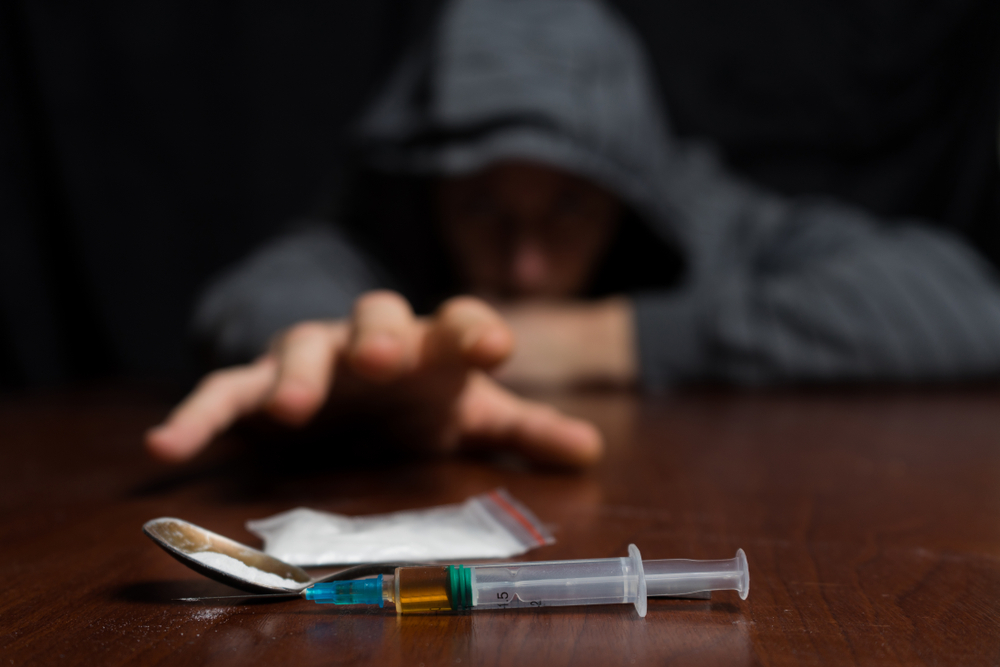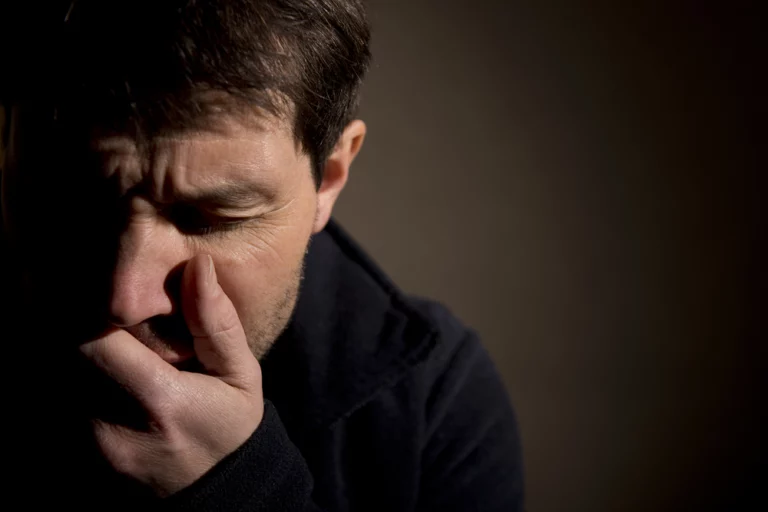Is Heroin a Stimulant? Let’s Find Out
Is heroin a stimulant? Heroin, one of the most widely abused illicit substances in the world, hooks users into continuous substance-taking behavior by producing an intense and euphoric high. But what is its drug class? And what is a stimulant, anyway? To learn more about how heroin works and why it’s addictive, we’ll learn about heroin’s drug classification as well as the negative effects of using this drug and the heroin addiction treatment options currently available.
Heroin is not a stimulant. In fact, it is the opposite. Heroin is classified as a depressant, a substance that slows down the central nervous system’s control of bodily processes.
Is Heroin a Stimulant or Depressant?
Heroin is an addictive opioid and depressant, not a stimulant. Euphoria, drowsiness, and pain relief are all side effects of opioids that act on the brain. Opium poppy plants naturally produce opioids. These substances are addictive, whether they are obtained via prescription or are illegal. These drugs are extremely addictive, and the over-prescription of them in the late 1990s led to a drug epidemic that continues today.
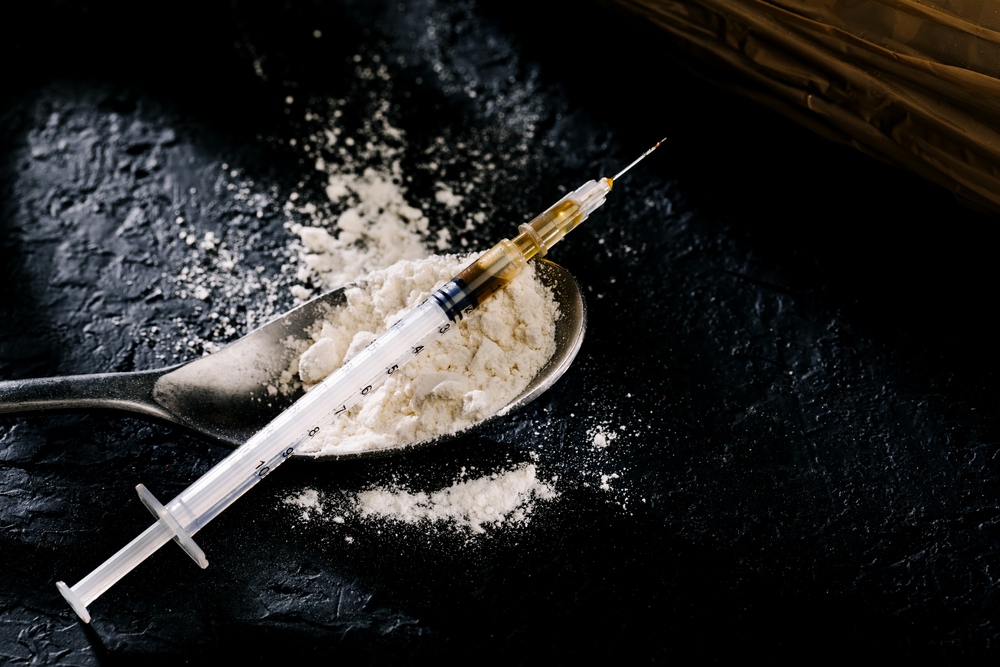
Many people who become addicted to heroin began abusing their prescription opioids. Heroin becomes the cheaper and more accessible option for these individuals as time passes. When someone ingests heroin, it binds to opioid receptors in many parts of the body, reducing pain—a benefit for people who take prescription opioids for pain treatment—but also releasing neurotransmitters such as dopamine.
What is a Stimulant?
Stimulants are a class of drugs that cause the body to become more active. These performance-enhancing and euphoria-producing drugs are frequently abused due to their stimulant effects. Those who take stimulants typically experience heightened energy levels and enhanced concentration.
Users may experience a boost in dopamine levels as a result of stimulants’ abilities to increase mental and physical activities. Although stimulants can provide short-term benefits, long-term use may result in serious consequences.
Both legal and illegal stimulants are commonly abused, and both are subject to regulation. Cocaine, methamphetamine, and prescription stimulants such as Ritalin, Adderall, and Concerta are among the most popularly abused stimulants.
What is a Depressant?
In contrast to stimulants, which stimulate the central nervous system, depressants reduce its activity by slowing it down. By depressing the central nervous system’s activity, depressants reduce levels of awareness and make the person feel drowsy and relaxed, while also lowering inhibitions.
Prescription depressants are used to treat a variety of sleep disorders or anxiety because they reduce brain activity. Benzodiazepines, hypnotics, and barbiturates are all types of depressants. When used appropriately, they are particularly beneficial for treating insomnia, panic disorders, acute stress reactions, and muscle spasms.
Depressants are, however, highly addictive due to their effects on GABA, a chemical that interacts with brain activity. Taking a large amount of a depressant long term can lead to physical and psychological dependence. While some depressants have a lower potential for physical and psychological dependence, tolerance to depressants can develop quickly, leading to a deadly overdose.
Stimulant vs Depressant
Both the brain and body can be altered by stimulants and depressants, which differ from each other in almost every way except for their ability to alter the central nervous system. Stimulants produce the effects of increased energy and alertness by increasing nerve activity in the central nervous system while depressants, on the other hand, slow down or suppress nerve activity in the brain and body, resulting in sedation, dizziness, drowsiness, and other symptoms. Stimulant drugs are referred to as “uppers” because they increase nerve activity, and depressant drugs are referred to as “downers” because they slow it down.
Despite their differences, stimulants and depressants both affect the brain’s functionality. Many, if not all, drugs of both types can lead to dependence and addiction if abused for long periods. People may either use depressants or stimulants for a variety of reasons. For example, college students who want to better their grades are frequently addicted to stimulants whereas People who have chronic pain might abuse depressants. Both types of drugs can lead to lasting damage if used improperly.
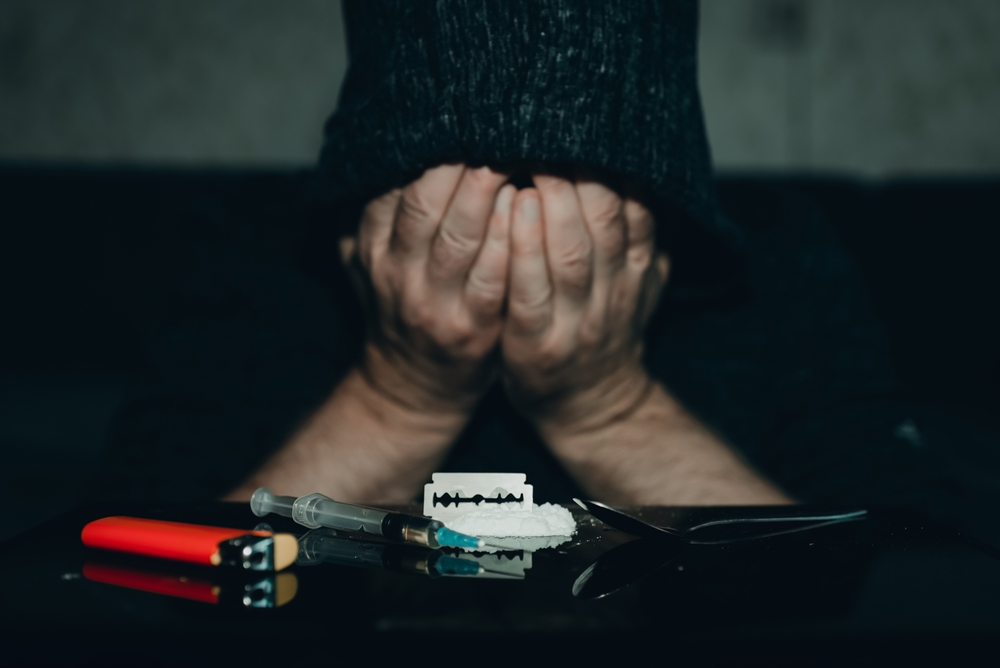
Side Effects of Heroin Use
When heroin enters the brain, it binds to opioid receptors on cells in a variety of locations, particularly those related to sensations of discomfort and pleasure, as well as controlling heart rate, sleeping, and respiration. The following are side effects of using heroin:
- Dry mouth
- Itching
- Flushed skin
- Euphoria
- Sedation
- Heaviness in extremities
- Semi-consciousness
- Pain relief
- Lack of coordination
Long-Term Effects of Heroin Use
The prolonged use of heroin alters the brain’s physical structure and physiology, resulting in long-term neural and hormonal imbalances. Some studies have found that heroin use may lead to the deterioration of the white matter in the brain. This may lead to problems with decision-making, self-regulation, and responding to stressful situations.
Long-term heroin use can cause serious health problems resulting from the practice of sharing needles. The CDC estimates that over 70% of new hepatitis C infections each year are due to drug users who use needles. This can result in AIDS and other infections. Other consequences of long-term heroin abuse are:
- Collapsed veins
- Infection of the heart lining
- Liver disease
- Abscesses
- Chronic depression
- Kidney disease
Dangers of Heroin Addiction
According to research, heroin abuse can cause brain white matter degeneration, which directly affects decision-making abilities, behavioral control, and responses to stress. Even after achieving sobriety, someone with a history of heroin use may be more likely to use heroin again than someone without a history of using since brain alteration also increases relapse risk.
Heroin use among women has been connected to infertility and irregular menstrual cycles. Some heroin-addicted pregnant women have experienced spontaneous miscarriages. Women may give birth prematurely, and their infants may be born with low birth weight and/or be heroin-addicted. Additionally, heroin addiction is associated with a diminished sexual drive in both women and men.
The most significant risk of abusing heroin is the risk of overdose. In cases where a person consumes high doses of heroin, the drug’s effects may overwhelm their system and cause an overdose. Opioids, such as heroin, affect brain regions that regulate breathing, and overdoses of these substances can therefore result in dangerously slowed breathing. Opioid-induced respiratory depression can, in turn, lead to full respiratory arrest and death in overdose situations.
Heroin Addiction in the United States
The increase in opioid-related deaths across the United States has created one of the country’s worst-ever drug crises. Millions of Americans suffer from opioid addiction, in addition to the more than 1,500 people who die each week from opioid-related overdoses.
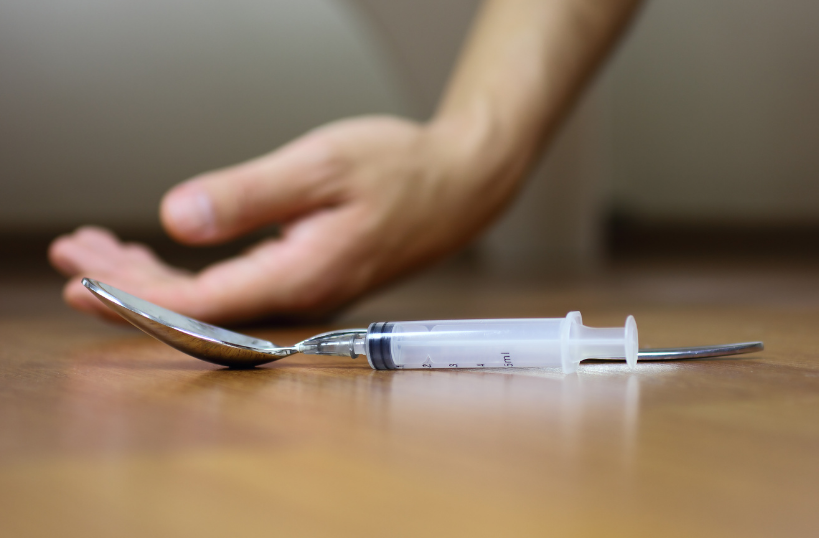
Fifty thousand people died from opioid overdoses in 2019, more than seven times the number of U.S. military personnel killed in the post-9/11 wars in Iraq and Afghanistan. CDC data shows that nearly seventy thousand opioid-related overdose deaths occurred in 2020 and eighty thousand in 2021. Because of opioid mortality rates, the U.S. has seen a historic drop in life expectancy since 2015.
The presence of fentanyl has also significantly contributed to the ongoing epidemic and is responsible for the most overdose fatalities in comparison with any other drug. Some users purchase heroin mixed with fentanyl in an effort to increase its potency or to disguise it as high-quality heroin. In reality, they are purchasing fentanyl, which often leads to overdose deaths.
Treatment for Heroin Addiction
Heroin addictions are usually treated with therapy, medication, support groups, and lifestyle changes, all of which are available at inpatient and outpatient treatment centres. Because of the symptoms of withdrawal and Heroin’s psychological hold over its users, treatment centres provide the best chance for successful recovery.
Detox
Heroin detoxification is the first step toward recovering from Heroin addiction. It’s critical to detox under the supervision of a team of professionals. Heroin withdrawal can be both painful and time-consuming, but physicians may provide medicine to reduce discomfort and help the body readjust slowly.
Rehab
A person may be able to stop using heroin and lead a more fulfilling life if they receive professional treatment for heroin addiction in a rehab facility. Despite heroin’s extremely addictive quality, many people have been able to achieve abstinence through professional substance abuse treatment. With the assistance of behavioral treatment strategies that promote healthy decision-making and behavioral patterns as well as medication to ease withdrawal symptoms, long-term recovery is possible. The lengths of rehab programs vary but typically range from 30 to 90 days and can be offered in both inpatient and outpatient settings.
Aftercare
It is crucial for patients recovering from drug addiction to have access to a team of physicians and specialists for ongoing maintenance and aftercare of their condition, just as a person with diabetes would not receive a diagnosis and ignore his condition. A patient recovering from addiction must continuously treat and manage his condition in order to maintain sobriety and good health. Aftercare programs provide ongoing therapy, 12-step support groups, alumni membership, sober living referrals, and much more.

Heroin Addiction Treatment at Durable Recovery
Professional assistance and therapy are crucial if you or a loved one is suffering from heroin addiction. At Durable Recovery, we have over a decade of experience treating addiction disorders. By offering intensive, specialized treatment services, we guarantee compassionate, effective care.
You can recover from heroin addiction with our help. Please contact us if you want to know more about our addiction treatment services or any of our other treatments. It’s time to take back your life, and we can help.


